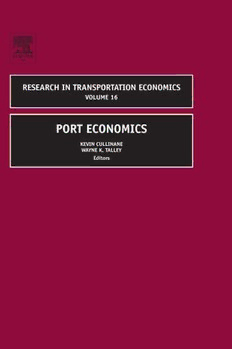
Port Economics PDF
259 Pages·2006·1.365 MB·English
Most books are stored in the elastic cloud where traffic is expensive. For this reason, we have a limit on daily download.
Preview Port Economics
Description:
A port (or seaport) is a place that provides for the vessel transfer of cargo and passengers to and from waterways and shores. Port economics is concerned with the study of the economics of port services.Users of port services are those that utilize the port as part of the transportation process of moving cargo and passengers to and from origin and destination locations. Users include transportation carrriers such as shipping lines, railroads and trucking firms that perform these movements and shippers and individuals that provide the cargo and themselves as passengers to be transported. Port users demand port services, whereas port service providers such as the port terminal operator supply port services to port users.Port economics and shipping economics comprise the branch of economics known as maritime economics. This volume provides original contributions to the study of port economics: 1) the evolution of port economics; 2) economic theories of the port, port cost functions and port investment; and 3) empirical evidence on the relative efficiency of ports, the impact of ports on international maritime transport costs, the competitiveness of ports and the impact of deregulation on dockworker wages.
See more
The list of books you might like
Most books are stored in the elastic cloud where traffic is expensive. For this reason, we have a limit on daily download.
